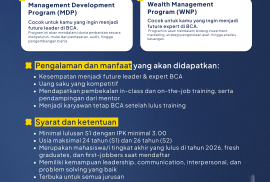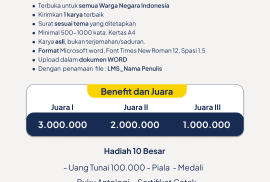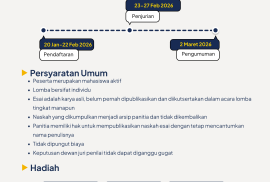National Hiring ODP Mandiri 2026 Officially Open
Career InfoUncategorized Tuesday, 3 March 2026
National Hiring ODP Mandiri 2026 Officially Open
Bank Mandiri has officially launched the National Hiring Officer Development Program (ODP) 2026 through a fully integrated end-to-end digital recruitment process conducted simultaneously across Indonesia. This program is designed to identify and develop top talents who are prepared to become future leaders within Bank Mandiri.
Carrying the spirit of “Fast-Forwarding Your Career with ODP Mandiri,” the selection process is structured, transparent, and efficient, enabling candidates to complete every stage seamlessly through an integrated system.
Selection Stages:
Psychometric Test: March 7–8, 2026
LGD (Leaderless Group Discussion): March 8–11, 2026
Final Interview: March 12–13, 2026
Candidates who successfully pass all stages will officially begin their journey as ODP participants on March 27, 2026.
The registration deadline is March 6, 2026.
For detailed information and application submission, please visit:
🔗 bmri.id/ODPNationalHiring2026
This program offers a strategic opportunity for Indonesia’s top graduates who aspire to accelerate their career growth. Take the next step and join the selection process today.



